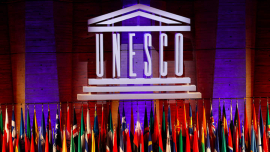
South Africa is set to host the 10th UNESCO Global Media Information and Literacy Week (MIL Week) from the 25th to 29th October 2021.
On behalf of President Cyril Ramaphosa, Basic Education Minister Angie Motshekga, responsible for UNESCO relations, will officially open the MIL Week and give an opening address on Monday.
As part of the programme, Motshekga will also present at the Plenary Session: State-linked response on media and information literacy policies and strategies.
Launched in 2011, the Global MIL Week seeks to empower people to develop themselves and their societies through enhanced capacities in communication and information.
This year, MIL Week will be held under the theme, ‘Media and information literacy for the public good’.
Local speakers will also include the Minister of Communications and Digital Technologies, Khumbudzo Ntshavheni, who will address a session titled ‘Media and information literacy for global citizenship and addressing digital transformation’ on Wednesday 27 October.
“The seeds of Global Media and Information Literacy Week were planted in 2011 in Fez, Morocco, and captured in the Fez Declaration on Media and Information Literacy.
“This was long before the exponential rise in disinformation, political polarisation, increasing influence of digital platforms as well as the COVID-19 pandemic, which in itself has seen a plethora of fake news stem up, particularly across social media,” the Department of Basic Education said in a statement.
South Africa is the first sub-Saharan African country to host MIL Week and the country takes its place amongst nations across the globe that continue to advocate for a more informed media and citizenry.
The five sub-themes for the 2021 Global Media and Information Literacy Week are:
1) Positioning media and information literacy in the post-pandemic world;
2) Enhancing co-operation among stakeholders to sustain media and information literacy development;
3) Promoting the second edition of UNESCO’s Media and Information Literacy Curriculum for Educators and Learners;
4) Increasing funding opportunities, and
5) Advancing media and information literacy research and knowledge. Together they aim to ensure tangible advances in the role of media and information literacy to uphold the vision of information as a public good, as the world slowly begins to move towards a new post-COVID normal. - SAnews.gov.za


